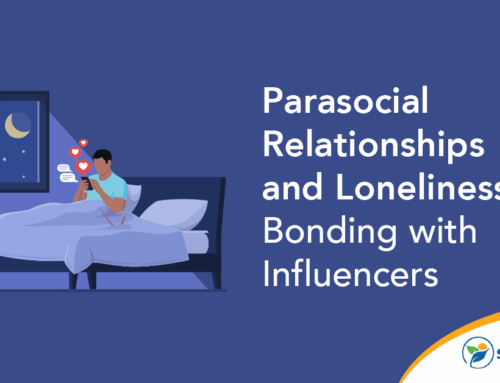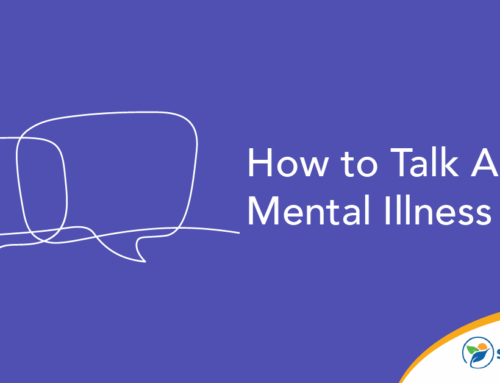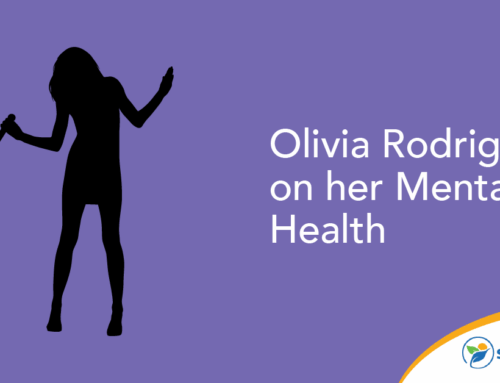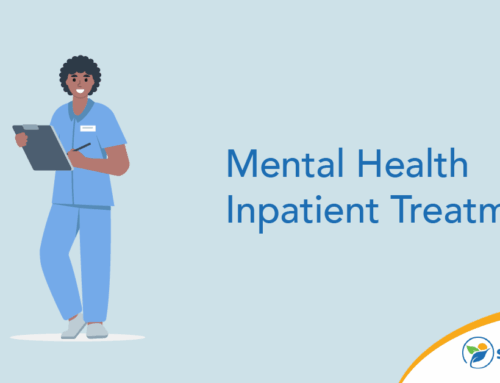No two people experience a mental health condition in exactly the same way, so it’s important to receive personalized treatment based on a careful review of your background. For people with substance use disorders, psychotherapies are the gold standard in treatment, as they help eliminate unwanted behaviors and replace them with healthier habits. Learn more about how psychotherapy may help you recover from an addiction to drugs or alcohol.
What Is Mental Health Therapy?
Psychotherapy, often called talk therapy, is a type of mental health treatment designed to help you cope with stressful situations and improve your overall well-being. It’s helpful for people with depression, anxiety, phobias, obsessive-compulsive disorder (OCD) and post-traumatic stress disorder (PTSD).
When you meet with a therapist for the first time, you’ll work together to determine which type of psychotherapy is likely to yield the best results for your situation. For example, people with borderline personality disorder often benefit from participating in dialectical behavior therapy, while people with depression may have better results with cognitive behavioral therapy.
Benefits of Psychotherapies
Participating in psychotherapy has many benefits, especially if you attend regular sessions and follow your therapist’s recommendations. One of the main benefits is that it can help you improve your ability to cope with stressful situations. When you have poor coping skills, you’re more likely to turn to drugs or alcohol when you encounter stress at work, at home or in social situations. Improving your coping skills makes it easier to manage stress, reducing the risk of relapse once you’ve committed to your recovery.
During a psychotherapy session, your therapist may ask you to examine your thoughts, attitudes and beliefs. This provides a valuable opportunity to identify harmful patterns and find ways to overcome them. As a result, people who participate in psychotherapy generally have an increased level of self-awareness. You may even discover why you have trouble maintaining relationships or staying motivated in your personal life.
Psychotherapy also improves your overall well-being. When you have strong coping skills and a high level of self-awareness, you make better decisions. After several therapy sessions, you may discover your mood has changed for the better or you no longer feel the urge to use substances as soon as you encounter some type of stress. For some people, it takes as little as 2 or 3 months of treatment to experience these positive changes.
Finding the Right Therapist
Researchers from the University of Sheffield believe therapists account for between 5% and 10% of the unexplained variations in patient outcomes. That makes it extremely important to find the right therapist before you begin your psychotherapy sessions. When you contact a potential treatment provider, ask these questions to determine if they’re a good fit for your needs:
- How long have you been working as a therapist?
- Can you tell me about your credentials?
- Which therapeutic approaches do you use? What are their advantages and disadvantages?
- How long does it typically take your patients to start feeling better?
- How will you track my progress if I decide to work with you?
- Do you accept my insurance?
- Do you have experience treating patients with my symptoms and personal background?
If religion plays an important role in your life, you may want to look for a therapist whose personal beliefs align with yours. For example, some therapists offer Christian counseling, which combines the principles of talk therapy with the principles of Christianity.
Types of Psychotherapy
Psychotherapy is a broad term that includes more than a dozen treatment approaches. These are some of the most common psychotherapies available:
- Cognitive behavioral therapy: CBT aims to help participants overcome negative thought patterns and change the way they think about their challenges.
- Psychodynamic therapy: Psychodynamic therapy helps people understand how their past experiences affect their current behavior. Once you understand how the past affects the present, you can focus on healing.
- Person-centered therapy: Also known as Rogerian therapy, person-centered therapy helps participants improve their self-esteem and express their emotions in a productive way.
- Dialectical behavior therapy: Although it’s derived from CBT, DBT has a different goal. If your therapist recommends DBT, you’ll focus on learning how to accept your current reality while working to eliminate harmful behaviors.
- Eye movement desensitization and reprocessing: During an EMDR session, you make specific eye movements while working to process your trauma. Many therapists use EMDR to help patients with PTSD.
Incorporating Psychotherapy Into Daily Life
Psychotherapies are most effective when you commit to making lasting changes. You may meet with a therapist only once per week, but you can apply the principles of psychotherapy to every aspect of your life, making it easier to develop healthy habits and eliminate negative behaviors.
One way to incorporate psychotherapy into your daily life is to take a few minutes every morning to write in a journal. You don’t need to write multiple pages to benefit from this practice. Simply write about how you’re feeling and how you plan to handle those emotions throughout the day. Even if you don’t feel comfortable discussing these entries with your therapist, you can use them to identify harmful patterns and track your progress.
Another option is to set goals and track them carefully. If you take this approach, make sure your goals are realistic. For example, if you’re currently drinking four drinks every night, trying to go from four to zero in a short time could be setting yourself up for disappointment. A more realistic first goal might be to cut down to three, and then to two. While you work toward your goals, it’s important to participate fully in the treatment process. If your therapist gives you an assignment or asks you to try something new during a session, commit to following through.
Finally, practice self-care measures as often as possible. Going to a spa is great, but you don’t have to spend a lot of money. Getting plenty of sleep, drinking water throughout the day and eating nutritious foods to support your well-being can all help you improve your life.
Begin Your Recovery
If outpatient therapy isn’t helping you reach your goals, consider enrolling in an inpatient program for ongoing support. Sunlight Recovery has experienced addiction treatment professionals available to help you reach your goals. Contact us now to discuss your needs and schedule your admission.







